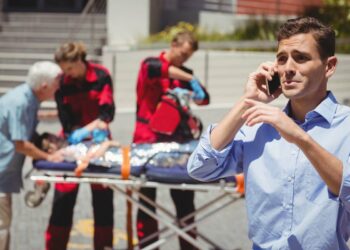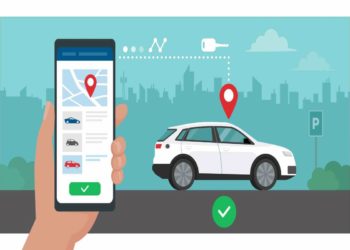A road trip is a great way to bond with your loved ones and see new sights. However, you must be prepared for the unexpected. You can’t always predict when emergencies will creep up, so it’s better to be ready for them from the get-go. Here are a few things you should prioritize in a crisis.
Table of Contents
1. Take Classes Before You Leave
You never know when your life skills may come in handy during an emergency. Knowing what to do in a life-threatening situation can completely change what might otherwise be a tragic or frightening outcome. Consider taking a first-aid or CPR class online to be prepared for most emergencies.
More than 4.6 million people take American Red Cross classes each year, and you can do so from the comfort of your home. You should also take a safe driving course if you aren’t confident about traveling long distances. The more you do to prepare yourself, the less afraid you’ll feel if something goes wrong during your fun trip. It’s always better to be ready for just about anything.
2. Let Someone Know
You need to let someone know as soon as you experience an emergency. People should already know where you’re going and how long you’ll be gone, but you should also call them when something unexpected comes up. That way, they’ll know what happened and when you can get back on the road. Pick a trusted person to contact during an emergency, even if they’re too far away to help physically.
3. Rely on the Proper Materials
You must stock your car with the proper materials whenever you take it for a long road trip. A lesser emergency might be getting a flat tire. If your vehicle has the space to store items aside from your luggage, you can pack a jack, gloves and something to stop your car from rolling away while working on it. Then, you can change your tire without worry — as long as you have a spare on hand.
You should also have an emergency car kit at the ready. It should contain basic necessities, like toiletries and nonperishable food and water, which can last a night or two if necessary. You may also want to pack changes of clothes in case things get ruined or you don’t have access to other garments.
Blankets can also be useful in an array of situations. Having these materials ready will save you a lot of stress in an emergency.
4. Know What to Do on the Road
Being able to drive in inclement weather is necessary on a road trip. Part of your planning should include researching the type of weather and areas you’ll be traveling through. You should check the forecast before you set out for the day, but sometimes, storms can surprise you. You need to be ready to tackle any obstacle as it comes your way.
If you aren’t used to driving in snow, you may not know what to do if you get stuck. You should keep the engine warm so it doesn’t freeze over and ensure the tailpipe isn’t blocked at any point. Otherwise, it could lead to carbon monoxide poisoning inside the car.
You should also know how to maneuver the car in a flood, especially if it results from a storm. Do not drive into standing water, as you could easily lose control of the vehicle. You also must be wary of power lines. If one hits your car, drive away and keep the car on. Wait for emergency services to rescue you.
5. Know What to Expect in the Aftermath
Reading up on different types of emergencies will help you better understand what to expect if you need to call emergency medical services on your road trip. For example, some crashes can result in someone getting stuck in a car. Emergency services technology has improved drastically over the years and they can easily separate the metal of your vehicle if trapped. Avoid trying to break out yourself unless absolutely necessary to avoid worsening the situation.
6. Look for Resources
You may run out of fuel at some point in your journey. Move the car off the road when you hear sputtering, if you can. Leave your hazard lights on so other vehicles drive around you. Use your GPS to find a nearby gas station. You should have a gas can on hand to transport gasoline to your car in an emergency, so you can fill it up with enough fuel to drive there.
Call for roadside assistance if you aren’t within walking distance of a gas station or it seems too dangerous to keep going. It might be pricey if you don’t have a membership, but it’s worth knowing your vehicle will be taken care of and you’ll be back on the road soon. Always watch for resources you can use, like nearby gas stations — they might just save your life.
7. Preserve Your Mental Health
When you’re in an emergency, your loved ones might look to you as the group leader. You might need to be responsible for keeping everyone calm and explaining things to them in terms they can understand. You can tell them to focus on the sweeping views throughout your journey, particularly if you’re in a place with beautiful landscapes. Be realistic, but encourage everyone to look on the bright side. Focus on what you can work on right now.
You shouldn’t give in to panic during an emergency. Though it might be tempting to lose yourself for a moment so you can release your emotions, you need to be stable enough to contact people who will help you out. If you can afford it, give yourself a few moments to breathe. You must stock your car with the proper materials whenever you take it for a long road trip.
Stay Safe on the Road During Road Trip Season
Stock yourself with the knowledge you need to be ready for anything on your big adventure. You shouldn’t anticipate something going wrong — otherwise, you’ll never be able to relax. Enjoy your vacation to the fullest. As long as you’re prepared for any wrench life may throw your way, you’ll have a phenomenal road trip with the people you love most.














